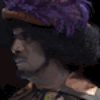Numerous conversations with execs, current and former coaches, players and scouts revealed some common ideas about how the league is identifying and hiring coaching talent:
You're a manager first: It's not that whiteboard wizardry is out of fashion, but "can get the buy-in" is the new "defensive mastermind." Tactical prowess means zilch if a coach lacks the power of persuasion to get his team to run all that pretty stuff. To do that, a coach has to manage the sensitivities of his players, all of whom require different messages. He has to handle a large staff, sell ideas to the guys upstairs and schmooze the media (but resist taking credit, lest he tick off players, management and ownership). Owners and general managers hiring a coach appreciate more than ever not only the enormousness of the job, but the nuanced roles that go with it.
The new blood: A couple of general managers noted that the success stories from the classes of 2013 and 2014 are largely first-time NBA head coaches. More notably, the retreads are having a tough go of it. The game is evolving quickly, and those who see a head-coaching gig in the NBA as continuing education are reaping the benefits, and those who feel as though they have all the answers are finding themselves at a loss when they learn the questions have changed.
There's no hard-and-fast formula: The league is learning that there's no one single way to arrive at the first chair on an NBA sideline. Start from the top of the leaguewide standings and you'll find teams coached by: a former player who had stints as both a general manager and a color analyst, a career assistant to the game's top coaching luminary, a standout D-League and CBA champion coach, a Hall of Fame power forward and veteran point guard, neither of whom served a single game as an assistant coach, as well as a legend of European coaching. Accordingly, few front offices have a predetermined type anymore. It's the human, not the resume.
The dual role: Find a grouchy NBA head coach and there's a good chance his primary grievance is that he hasn't been furnished with a roster that can execute what he wants to run. He's also peeved because he hasn't been consulted sufficiently on the selection of those players. In response, a number of prestige head coaches are angling for final authority on all basketball operations matters. Doc Rivers, Stan Van Gundy and Flip Saunders have joined Gregg Popovich as principals who preside over both the sideline and front office. With Danny Ferry in exile, Budenholzer is currently the Hawks' senior basketball ops manager. George Karl and Kidd have a very strong say with ownership in Sacramento and Milwaukee, respectively. But there's good reason why this model rarely succeeds. NBA head coach and NBA general manager are jobs far too demanding to combine unless there's the utmost trust in those empowered with the day-to-day responsibilities (see San Antonio).
In the spring of 2013 and 2014, we canvassed insiders for the names of coaches who, given the opportunity to lead an NBA team, have the tools to succeed. Those on the previous two lists who subsequently have been hired include Blatt, Joerger, Kerr and Snyder.
An individual on the list can't have previously had an NBA head-coaching gig. We also bypass those who have been on the list previously, though it's worth noting Fred Hoiberg, Dave Fizdale, Jim Boylen and Adrian Griffin each popped up more than once this time.
Here are six coaches whose combination of intelligence, work ethic, experience, people skills and temperament make them interesting candidates for an NBA head-coaching position either sooner or later:
Kenny Atkinson, Atlanta Hawks assistant coach

The arrival of a new head coach often signals the exodus of the previous staff. But when Budenholzer was brought on in Atlanta in 2013, Ferry strongly recommended retaining Atkinson, his first hire. Budenholzer didn't need much persuading. Player development was Atkinson's strength and it was a priority in Atlanta. And feedback among the Hawks players was so overwhelmingly positive bringing Atkinson back was a no-brainer.
After four seasons under Mike D'Antoni in New York, Atkinson has flourished in Atlanta as far more than a player-development guy. He's earned a reputation as an affable teacher who is both cerebral and a high-level communicator. He thoroughly enjoys getting on the floor with a player and sees that individual development work as a collaboration between player and coach.
"He believes you can improve as a player, even at the highest level, and that there's always something you can add to your game," Hawks big man Al Horford says. "He's been here for three years with me, and he's challenged me. For instance, before he got here, I was pretty much a shooter on the pick-and-pop. I was never really driving. Kenny has challenged me to put the ball on the floor. It's something we've worked on together, and now it's something I feel comfortable doing."
After a nice college career as a point guard at Richmond, Atkinson had a long career in Europe, where he stayed to coach before heading to New York. He's worldly, with a curiosity for forward-thinking ideas, everything from injury prevention to analytics. He's someone who would look for new solutions as a head coach rather than insist he has every answer and rely on tired conventional wisdom.
Philadelphia general manager Sam Hinkie gave Atkinson a look in 2013, and there's a strong belief around the league that he's earned another series of interviews as one of the top assistant coaches currently on the market.




















